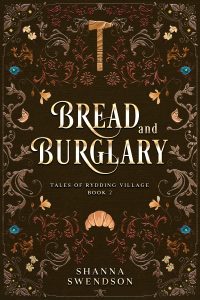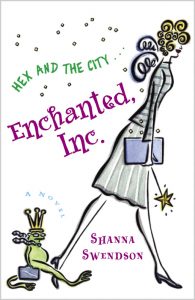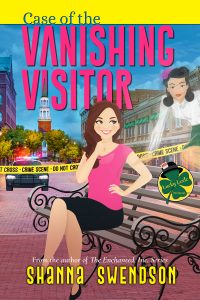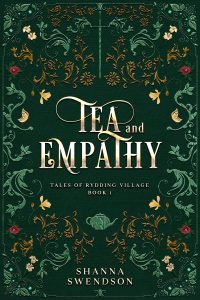My Books
Rydding Village Book 2
 After a bit of a delay caused by my move across the country, followed by another delay due to my procrastination about getting a book cover made, I’m pleased to announce that Bread and Burglary, book two in the Tales of Rydding Village series, will be published August 7, and the e-book is currently available for preorder. There will be a paperback on release day, but they don’t let you preorder those.
After a bit of a delay caused by my move across the country, followed by another delay due to my procrastination about getting a book cover made, I’m pleased to announce that Bread and Burglary, book two in the Tales of Rydding Village series, will be published August 7, and the e-book is currently available for preorder. There will be a paperback on release day, but they don’t let you preorder those.
This book follows up on Tea and Empathy, continuing with the development of what’s going on with Elwyn and Bryn from that book, but also focusing on Lucina the baker. We find out why she has so much trouble sleeping, and finding out that the guard who stayed to become the new apprentice smith is from the homeland she had to flee doesn’t help matters. Things get even worse when items begin disappearing from people’s homes, and of course the newcomer is the first suspect. Lucina worries they’ll start to wonder about her, too, if he’s the thief, so the best thing she can do is try to clear his name. Meanwhile, he’s homesick and excited to meet someone from his homeland.
It’s my usual mix of mystery, magic, and a hint of romance. And this one will make you hungry because there’s a lot of baking. I did a fair amount of baking while I was plotting it and writing the first draft. I wrote the first draft before the move, then started revising it while I was waiting for my furniture to be delivered to my new home. Without Internet or a television, I didn’t have a lot else to do, so I spent a whole day reading the draft and making revision notes.
I already have the next book planned and partially outlined, so I hope to be able to get that one out before the end of the year.
I set August 7 as the release date because that’s my birthday. I figured I’d be sure to remember it, and it gives me something else to celebrate. I don’t know what I’ll do for my birthday, since I don’t know a lot of people here and it seems like most of the places downtown are closed on Wednesdays. Celebrating a book release helps make the day special, no matter what else I do, but I’m pretty sure cake will be involved. Buying the new book would make a great birthday gift for me. I have dreams of making it at least onto the top ten list of one of the Amazon categories.

 On Monday (July 22 if you’re reading the archives), it will have been twenty years since I got the book deal to have the first two Enchanted, Inc. books published.
On Monday (July 22 if you’re reading the archives), it will have been twenty years since I got the book deal to have the first two Enchanted, Inc. books published. When I wrote Case of the Vanishing Visitor, it was inspired, in part, by the story about Agatha Christie’s disappearance during the 1920s. Her car was found wrecked in a remote place, her suitcase and driver’s license were in it, but she was nowhere to be found. There was a massive search for her, during which it came out that her husband was having an affair and leaving her for another woman. She was later found in a spa hotel about 200 miles away, registered under a different name (using the last name of her husband’s mistress). She claimed that she’d lost her memory, didn’t remember the accident or how she got to the hotel, and for much of the time she was there she didn’t even know who she was.
When I wrote Case of the Vanishing Visitor, it was inspired, in part, by the story about Agatha Christie’s disappearance during the 1920s. Her car was found wrecked in a remote place, her suitcase and driver’s license were in it, but she was nowhere to be found. There was a massive search for her, during which it came out that her husband was having an affair and leaving her for another woman. She was later found in a spa hotel about 200 miles away, registered under a different name (using the last name of her husband’s mistress). She claimed that she’d lost her memory, didn’t remember the accident or how she got to the hotel, and for much of the time she was there she didn’t even know who she was. Those of you who subscribe to my newsletter have already seen this news, but I’m about to launch a new book that I hope will be the start of a totally new series.
Those of you who subscribe to my newsletter have already seen this news, but I’m about to launch a new book that I hope will be the start of a totally new series.